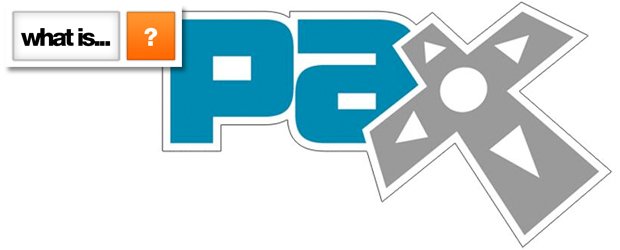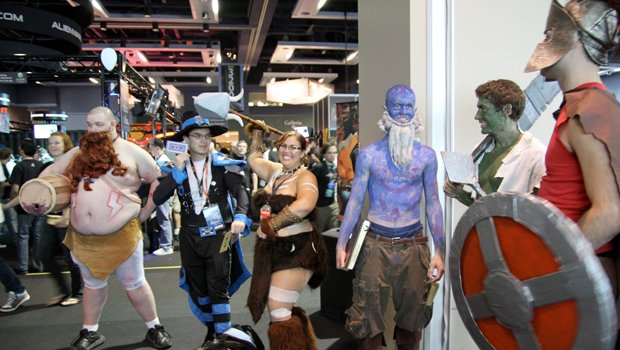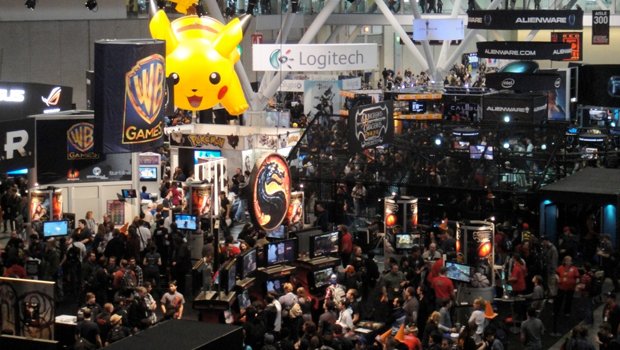What is PAX (the Penny Arcade Expo)?
Learn all there is to learn about Penny Arcade's show

Everyone knows about Penny Arcade--the gaming webcomic that is somewhat responsible for the legitimacy of gaming webcomics--but for as big and important as Jerry Holkins and Mike Krahulik's online comic is, it's really their convention that has, more recently, become an astounding success. Starting in 2004 with a relatively strong showing that included the likes of Rooster Teeth and Microsoft, the convention has grown exponentially, with each year adding new exhibitors, new guests, and thousands of new attendees. By 2011, PAX Prime had 70,000 attendees--not bad, considering tickets were sold out weeks in advance.
The reason we said "PAX Prime" up there is because, now, there are actually three PAXs. There's Prime in late August, the Seattle-based show that is, as of now, the largest of the conventions, as well as April's PAX East in Boston, which has also grown by leaps and bounds over the past few years. In 2011 it was also joined by PAX Dev, a developer-exclusive pre-show to PAX Prime that continued in 2012.

What makes PAX different from things E3 is the emphasis on community and, of course, gamers. Press is allowed in to cover the expo, but it's far from an industry show like GDC or Tokyo Game Show--instead, everything has to be playable on the floor, meaning there are no secret behind-the-scenes demos where developers show off early builds to members of the press. Because of this, it fosters a much different community. There are cosplayers, there are parties, there are after-parties, there are giant LANs, there are tabletop gaming rooms, and there are entire lounges filled with SUMO pillows to lounge about and play handheld games in. PAX isn't about a bunch of people seeing games, it's about a bunch of friends hanging out together. 70,000 friends.
That's not to say that gaming isn't a huge emphasis at PAX. Dozens of publishers show up every year, eager to show off their unreleased games to thousands of gamers. There are also other elements to the show, like the PAX 10, that make it unique. Independent developers could submit their games for consideration, and a panel of judges would select 10 games to highlight (that would then be voted on by the public at the show).
The PAX 10 has made PAX one of the only conventions that actually puts a spotlight on indie devs, earning the show good will with some of the most well-respected indie developers out there. There's also the Omegathon, which is a massive gaming tournament where dozens of contestants compete in a slew of different games for a huge prize. Each of these events is focused on the community and the fans, making it a fun, inclusive show.

PAX is like Disney World for gamers. It's full of flashing lights, fun games, and awesome people. It's the happiest place on earth, so long as happiness, for you, is a table to play D&D at after playing an unreleased video game with 70,000 friends you've never met. We have a feeling that, for many of you, it is.
Sign up to the GamesRadar+ Newsletter
Weekly digests, tales from the communities you love, and more
Hollander Cooper was the Lead Features Editor of GamesRadar+ between 2011 and 2014. After that lengthy stint managing GR's editorial calendar he moved behind the curtain and into the video game industry itself, working as social media manager for EA and as a communications lead at Riot Games. Hollander is currently stationed at Apple as an organic social lead for the App Store and Apple Arcade.



